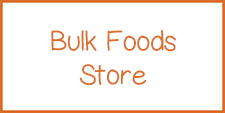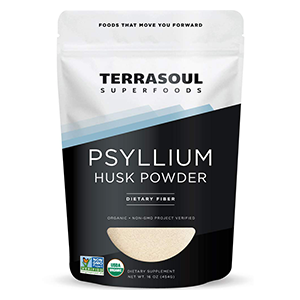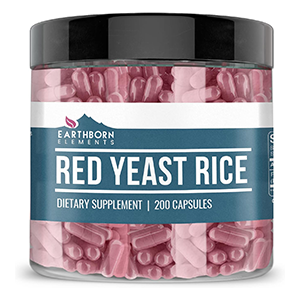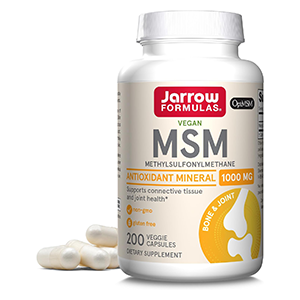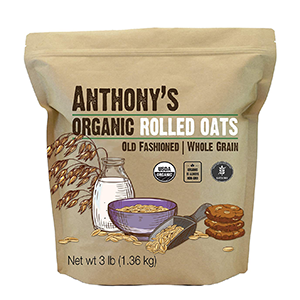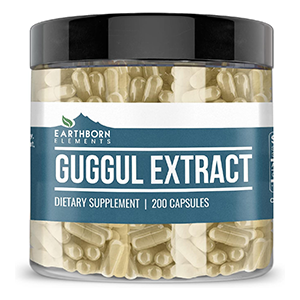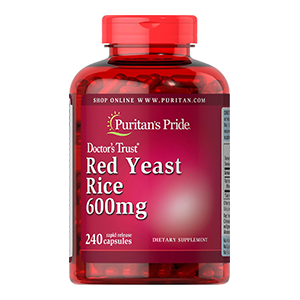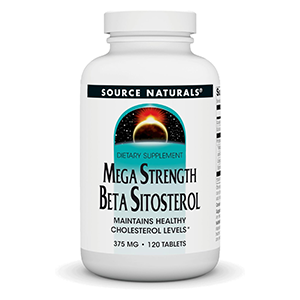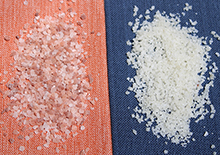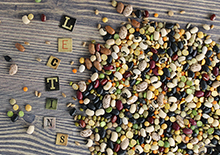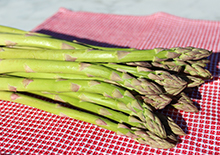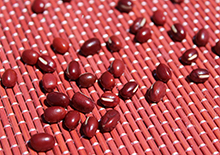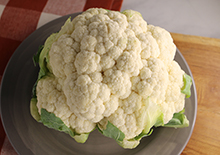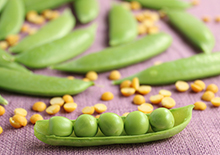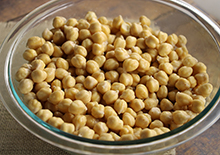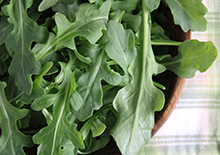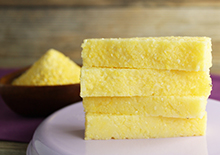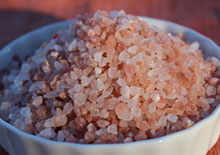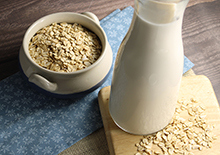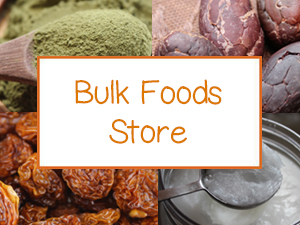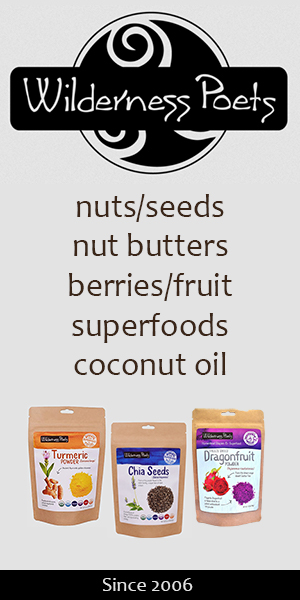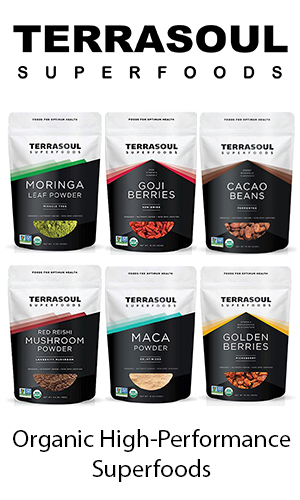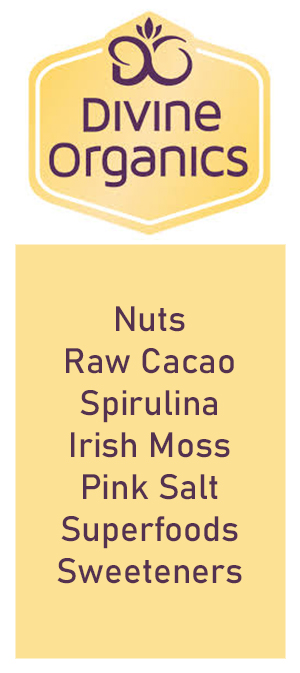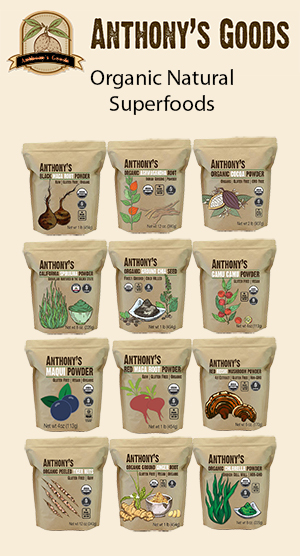- Home
- Plant-Based Cooking
- Lower Cholesterol Naturally
Lower Cholesterol Naturally, 10 Dietary Helpers
Red Yeast Rice | Leafy Greens | Beta-Sitosterol | Psyllium | Garlic | Guggul | Artichoke | Oatmeal | Legumes | MSM | Precautions
1) RED YEAST RICE
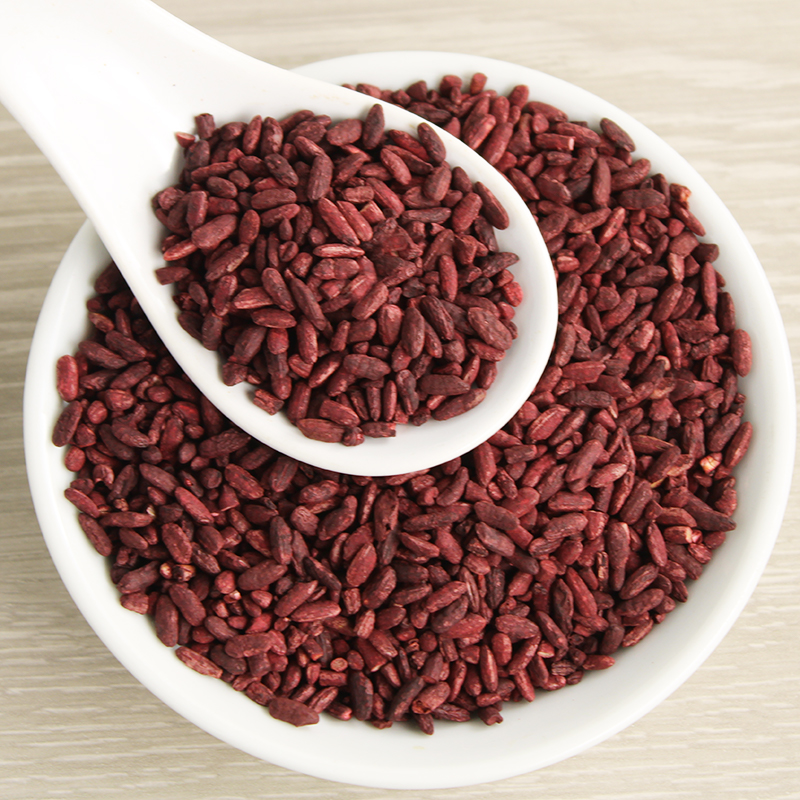
Red yeast rice, a type of koji, is a fermented red-colored rice grain that's inoculated with the mold Monascus purpureus. This species is known for its naturally occurring lovastatins and analogs monacolin K, monacolin L, and monacolin J, elements that have strong cholesterol-lowering influences.
The same mold Monascus purpureus is also utilized to extract MONACOLIN K the principal ingredient in prescribed lovastatin medications used to remedy high blood cholesterol. (*)
Red yeast rice powder is consequently highly revered in the dietary supplement world for its potential cardiovascular support.
2) DARK LEAFY GREENS

Eating more vegetables in one's diet is generally associated with improved cholesterol balance and decreased risk of atherosclerotic plaque deposits.
But dark leafy greens in particular can be especially advantageous to incorporate into a cholesterol-lowering dietary protocol. This category includes the winter-growing greens like collard and kale which are excellent sources of CHLOROPHYLL as well as FIBER and PROTEIN.
Lightly steamed chlorophyll-rich edible greens have protective blood cleansing qualities and are full of OMEGA-3 ALA fats, shown in research to have a positive influence on atherosclerosis.
Cooked dark leafy greens can also bind to bile acids when consumed, an impact that is scientifically related to cholesterol-lowering potentials. In addition, leafy green vegetables are high in nitrate and organosulfur compounds often reported to help slow the formation of plaque buildup in the arteries.
3) GUGGUL
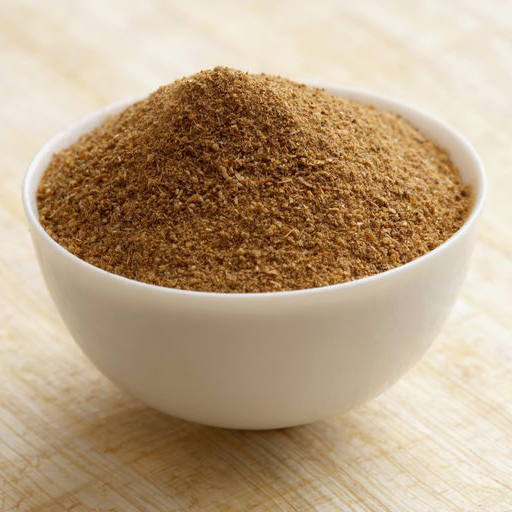
Guggul also called guggulu is a type of myrrh-like resin produced from the tree species Commiphora mukul (or Commiphora wightii).
It is very well-known in Ayurveda for its toxin-scraping actions that help to support healthy cholesterol balance.
The active constituents are plant steroids known as GUGGULSTERONES.
Guggul is available as a single herbal supplement as well as an ingredient in cholesterol-lowering formulations.
4) PSYLLIUM HUSK
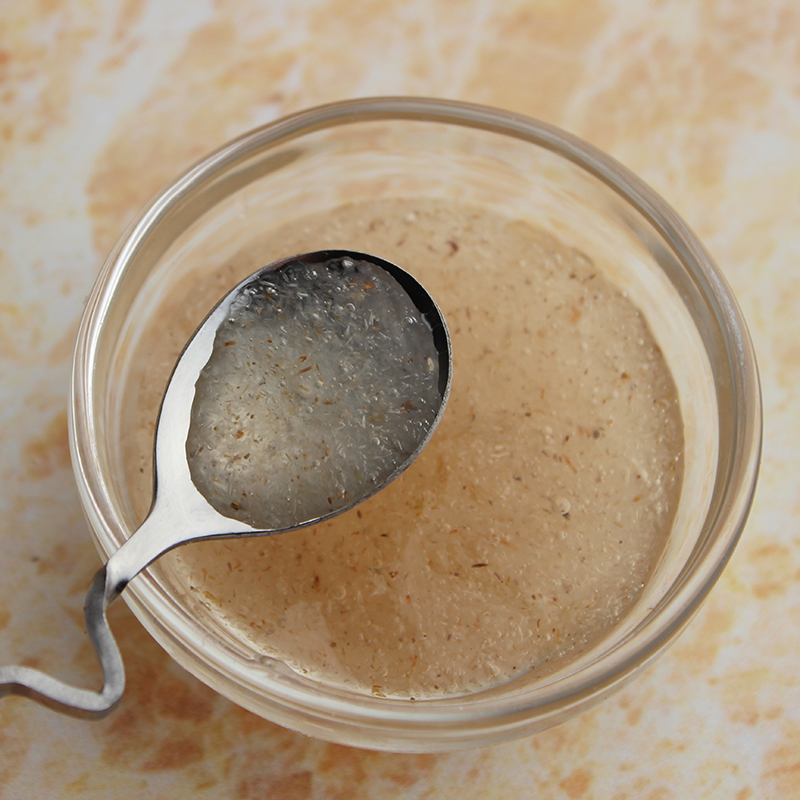
One key nutrient that is often lacking in high cholesterol diets is FIBER.
While consuming fibrous fruits and vegetables is important, sometimes you may need a more effective dietary strategy to tackle high LDL levels, often deemed "the bad cholesterol". This is where psyllium husk powder can come to the rescue.
Psyllium is mainly composed of SOLUBLE FIBER which becomes evident when mixed with water. Supplementation is researched most helpful in improving "lipid markers".
Soluble fiber concentrates, like psyllium are studied to have beneficial effects on reducing serum low density lipoproteins (LDL) and its apolipoprotein B cholesterol particles.
5) GARLIC
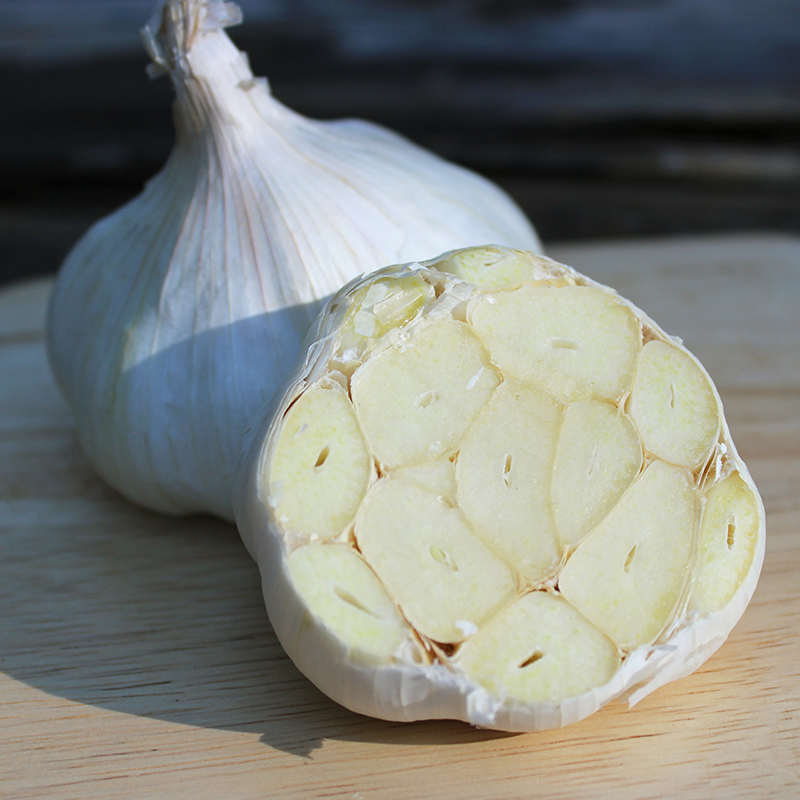
One of the commonly researched benefits of garlic, and its sulfuric ALLICIN derived constituents, is as a dietary adjunct for maintaining cardiovascular health. (*)
Garlic, as well as other alliums like onions, are age-old culinary spices that help to lower cholesterol naturally, while also maintaining high density lipoproteins or "the good cholesterol". Because most love the flavor of garlic, it is easy to integrate into a cholesterol-lowering meal plan.
All types of garlic, fresh, heated, dried or aged are found to offer protection against cardiovascular issues.
In one recent 2024 study, garlic consumption was shown to decrease risk of dyslipidemia, a condition defined by abnormal amounts of lipids in the blood, especially among the elderly.
6) BETA-SITOSTEROL
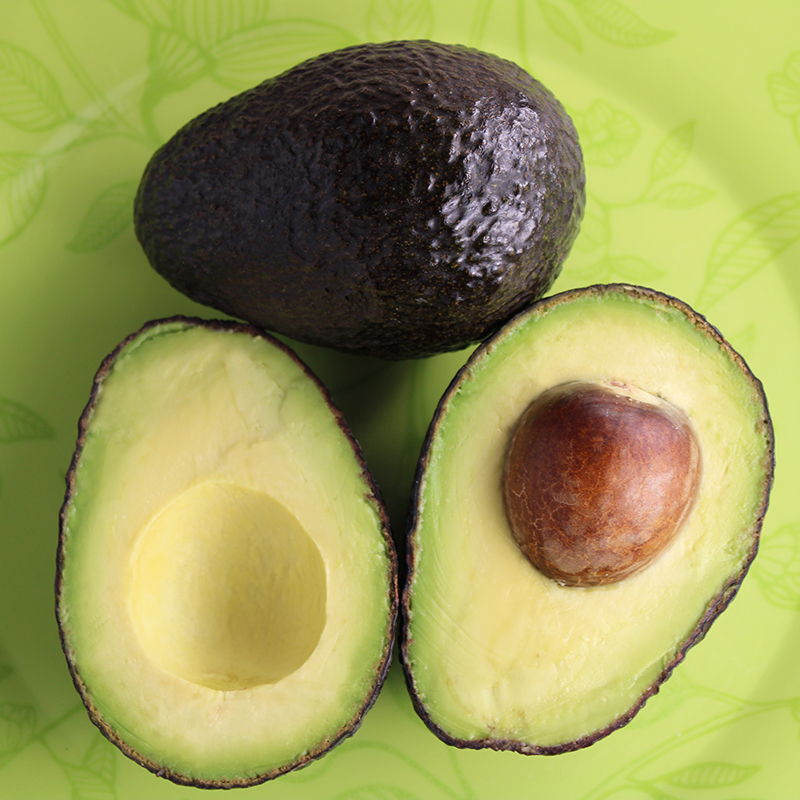
Foods high in beta-sitosterol, a plant-based sterol chemically similar to cholesterol, are useful for maintaining healthy LDL and HDL cholesterol levels.
This list includes avocados, dark chocolate, as well as nuts and seeds like pistachios and sesame seeds. Other phytosterol-rich nutritional sources in general are also beneficial including foods like legumes, rice bran, wheat germ and olive oil. Vegetable seed oils, like canola, are very high but we don't recommend consuming them long-term for their negative health repercussions.
Dietary beta-sitosterol as well as plant sterols can help to reduce blood cholesterol levels and may inhibit cholesterol absorption from food sources.(*)
Beta-sitosterol, often combined with other phytosterols, is also available as a supplement extract, advertised for boosting vascular health and is often taken with fatty meals. This may be something to consider if your current diet is high in saturated animal fats or proteins.
7) ARTICHOKE LEAF
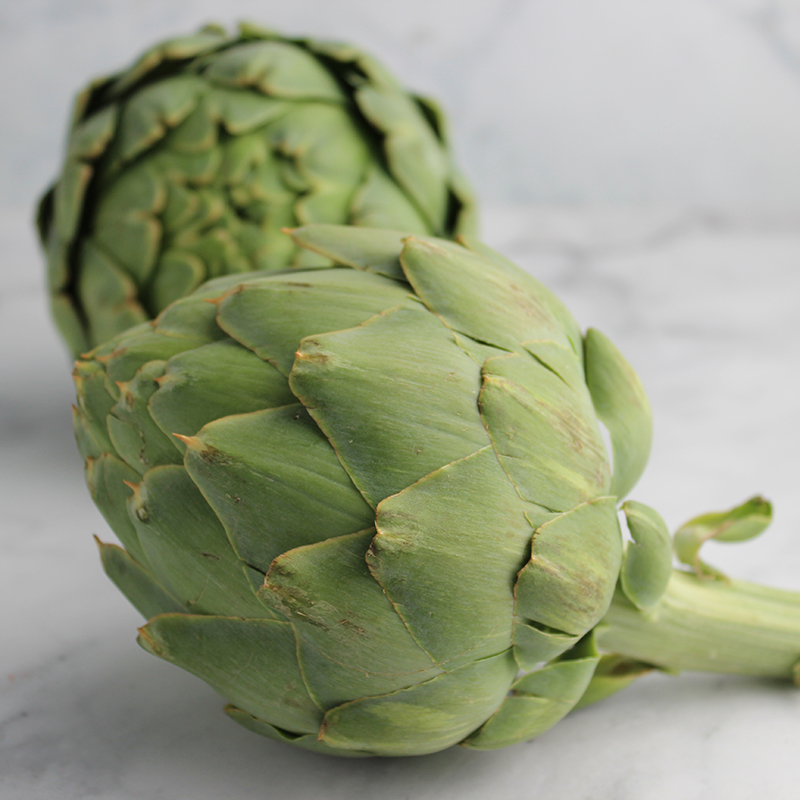
Artichoke leaf extracts, standardized for its CAFFEOYLQUINIC ACIDS, have long been employed as a dietary helper to lower cholesterol naturally.
As a digestive BITTER, it is reported to help in the absorption of fat soluble nutrients and promote overall liver health, elements which may encourage more efficient digestion of cholesterol.
In one human study conducted, 5-13 weeks of daily supplementation on over 700 people was identified to reduce LDL cholesterol and triglycerides.
Some propose that the LUTEOLIN and QUERCETIN content in artichoke may be also responsible for inhibiting cholesterol build up.
8) OATMEAL
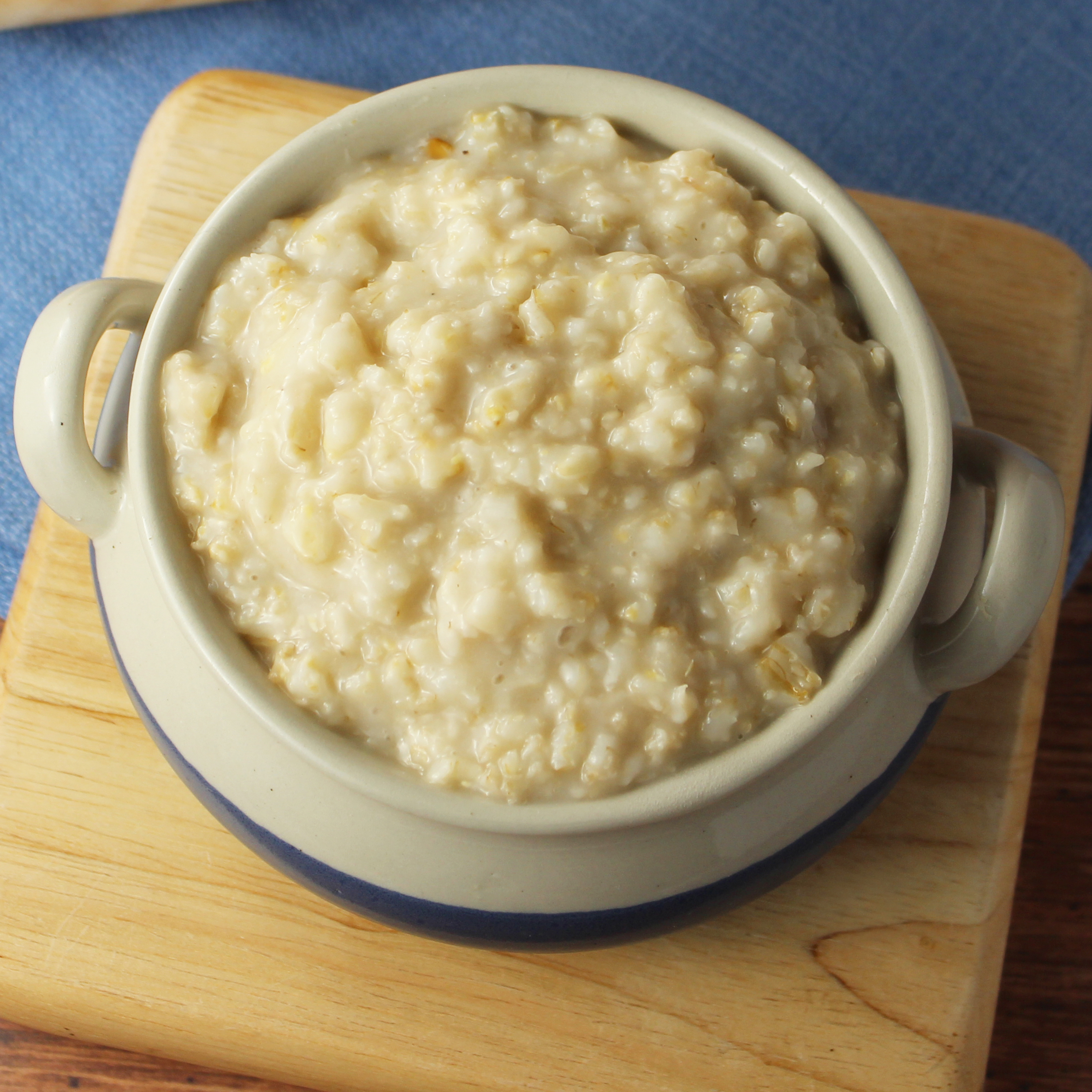
Oatmeal made from cooked oats is full of BETA-GLUCANS well-known for their gel-like fiber claimed to promote LDL cholesterol-lowering properties without changing beneficial HDL cholesterol.
It's also likewise on the protocol of foods that can protect against heart or cardiovascular issues according to other research.
Whole non-glutenous grains, like brown rice, quinoa and millet, can also be helpful to include for added fiber content and to replace highly refined grains.
9) LEGUMES
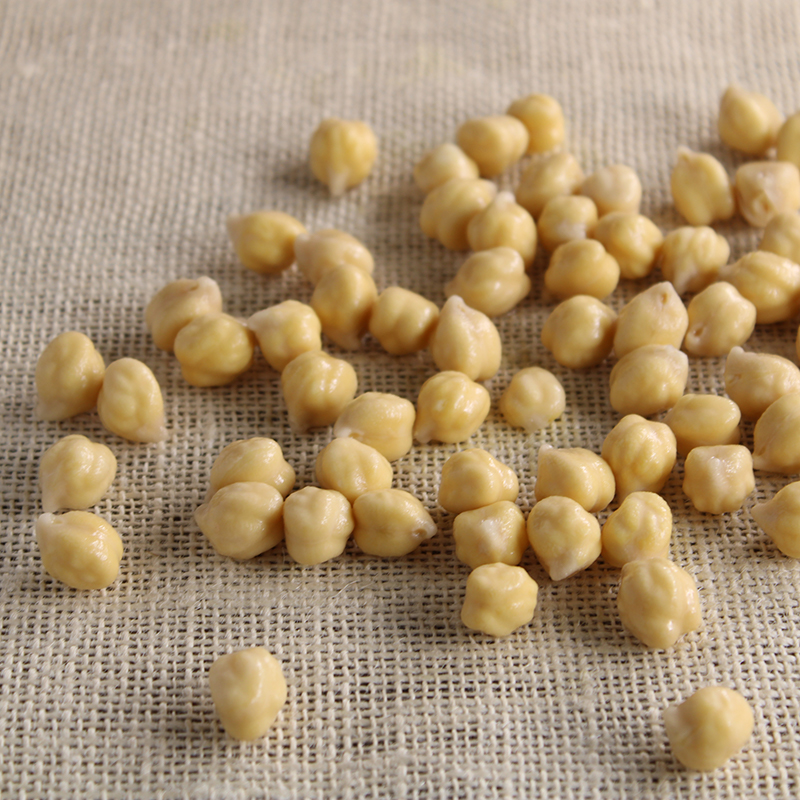
One of the things often recommended for those looking to reduce LDL cholesterol is to swap out animal-based foods for more plant-based ones.
Legumes are top on this list and can make great meat PROTEIN replacements. This includes all types of beans, lentils and peas.
Try substituting tofu instead of eggs or a chickpea hummus instead of chicken salad.
Legumes contain protein as well as fiber which can bind to cholesterol and excrete it from the body.
This is backed up by some research showing that one cup of beans consumed once a day for 4 weeks decreased both Total and LDL cholesterol in those with elevated levels.
10) MSM
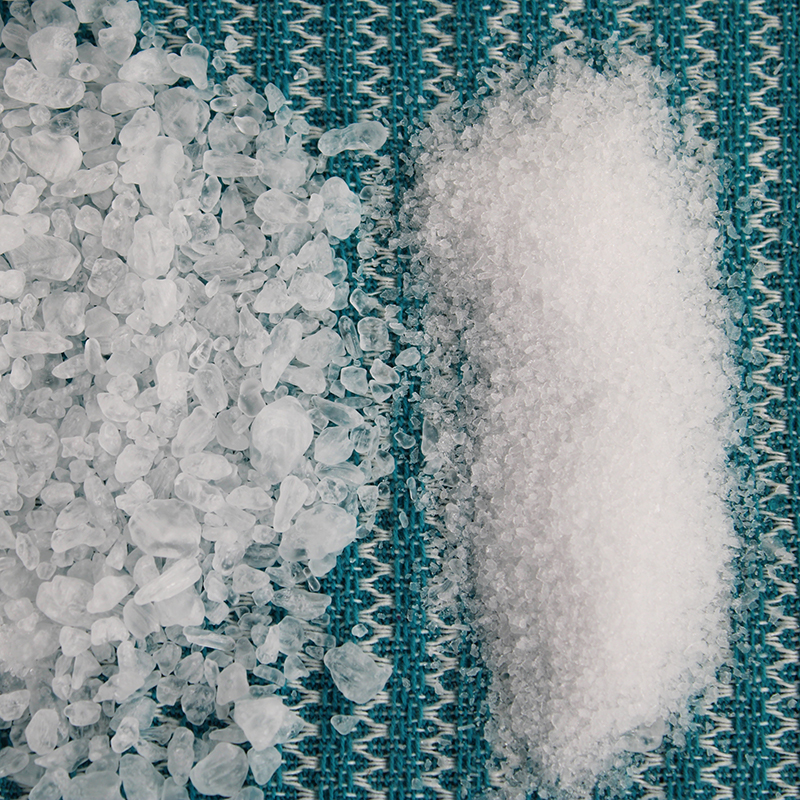
MSM is a dietary supplement that's made up of about 34% sulfur content.
Not only is it beneficial as an anti-inflammatory for joint support, the white crystalline powder is known in some health circles as one of the great calcification and plaque dissolvers.
In some findings, MSM supplementation may positively influence cholesterol ratios by increasing HDL or "the good cholesterol".
A pure quality MSM supplement can also support the body's natural detoxification processes and help in the production and effectiveness of the "master antioxidant" known as glutathione (GSH).
Glutathione has been shown to exhibit "antiatherogenic properties" potentially useful for those with atherosclerosis.
Precautions:
Seek the advice of a qualified health professional before trying to lower cholesterol naturally using foods or supplements on this list. This is especially the case if you are pregnant, nursing, have a serious health condition or are taking any medications.

Shop Related Products (About Affiliates & Amazon Associate Paid Links)
Affiliate Disclaimer: This section contains affiliate product links. If you make a purchase through our recommended links, we receive a small commission at no additional cost to you. Thanks for the support.
